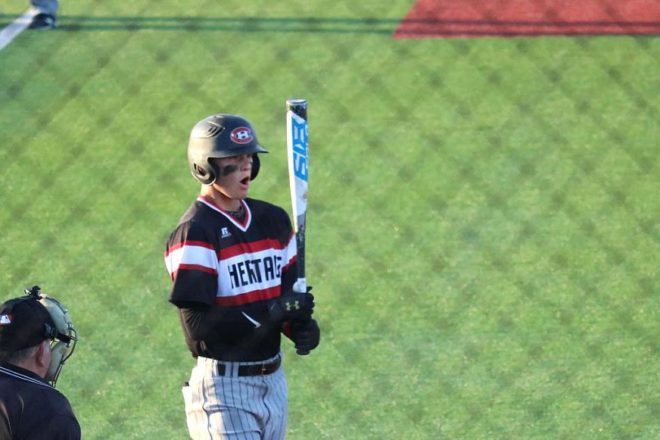Erik Bakich, Head Baseball Coach at The University of Michigan. Coach Bakich led the Wolverines to the Big 10 Conference Championship in 2015 and participated in the NCAA Tournament for the first time as a head coach.
I first started working with Bakich when he was an assistant coach at Vanderbilt in 2007 and have worked with him in his head coaching stops at The University of Maryland and now at Michigan.
Bakich is one of the most well rounded coaches I have ever worked with.
When I am asked by other coaches what programs they should go visit to learn from, Michigan is always near or at the top of my list because of the tremendous accelerated player development system Bakich and his staff run on a daily basis.
Bakich played for Keith LeClair at East Carolina University and was teammates with our most downloaded podcast with current ECU Baseball Coach Cliff Godwin (Cliff Godwin – The PIRATES Mission).
He has also coached under legends Jack Leggett at Clemson and Tim Corbin at Vanderbilt. He was on the staff in Nashville with one of the most respected pitching teachers in the world in Derek Johnson, now the pitching coordinator for the Chicago Cubs.
To reach your maximum potential, it extends beyond the playing field.
We reached back into the archives fro this podcast, recorded on April 12, 2013 because of the fabulous strategies for success Bakich shares that you can use to help close the gap from where you are to where you want to be in your program and in your life.
Bakich discusses his journey to becoming a Division 1 Head Coach, as well as the demands of having such a position, the difference between being a champion and winning a championship, his weekly leadership, mental conditioning and perspective building sessions, what it takes to have double energy at the house and at the field, the importance of EXTREME organization, having a daily routine and knowing what it is you want to accomplish each day are also among the topics of discussion this week.
Coach Bakich also sits in the hot seat and gives rapid fire answers about:
- National Anthem
- Compared To What
- Perspective Poster
- Concentration Grids
- Breathing
- Process
- Life skills
- The compound effect
- Make your bed
- Recruiting
- Reading one book per week
- Omaha
- The peak performance journal
- Measurement = motivation
- The importance of nutrition
- Leaving a legacy
- Servant leadership
- The Legacy of Pat Tillman
MORE ON ERIK BAKICH
I first met Erik Bakich in January of 2007 when he was an assistant baseball coach at Vanderbilt University. He has since been the head coach at The University of Maryland (2010-2012) and took over as the head baseball coach at The University of Michigan in 2013. At the time, Bakich was the youngest head baseball coach at a BCS School and is widely regarded as one of the top recruiters in the game. He recruited and coached David Price, the 2007 MLB #1 overall pick and 2012 MLB AL Cy Young Award winner as the best pitcher in the American League.
Bakich played for Keith LeClair at East Carolina University and then began his collegiate coaching career under Jack Leggett at Clemson University where he helped the Tigers to a 54-17 record and a 2002 NCAA College World Series appearance.
I have been most impressed with Bakich’s blue collar approach, philosophies and training systems for developing the total athlete and total person. If you listen to the short, 3-minute interview (below) that he did on WTKA 1050am Sports Talk you will hear him discuss some of that philosophy:
1. No excuses; inclement weather is an uncontrollable factor that you work with, not against.
2. Have an attitude of gratitude and appreciate what you do have vs. focus on what you don’t have.
3. Team 147 – identify who you are, what you stand for and what your legacy will be as a team within the history and tradition of the program.
4. Develop a core Leadership Council and give ownership of your team to the players by identifying who you are as a team and what Michigan Baseball looks like on the field, in practice, in the school and in the community.
5. Develop and train leadership in all of your players through leadership training classroom sessions on a consistent basis. Leadership is a skill that can be taught just like the fundamentals of your sport.
6. Evaluate and assess what you are doing and how it is working. Constantly check for understanding by giving “tests” throughout the season and at the end of the fall.
7. Know how you want to be remembered and who you are before you start your journey. TEAM 147 – Toughness, Intangibles, Energy, Aggressiveness.
Bakich is a Master of The Mental Game and will teach his men to recognize when they’re in red lights, release those negative thoughts and get back to the present moment and the next pitch. Success in baseball is largely about your ability to focus on what you can control and play one pitch at a time. This is best accomplished by using your pre-pitch routine and breathing.
The Following Article Is From The Detroit News About Bakich Remaking Michigan Baseball:
Michigan Baseball Built on Process & Positive thinking
Bakich has enlisted the help of Brian Cain, a mental conditioning coach who has worked with several college baseball programs. Cain’s purpose is to give players tools to understand the mental aspects of baseball.
“They’ve learned how to implement routines and use breathing and visualization and self-talk to not only help them maintain their confidence, but be able to focus on one pitch at a time,” Bakich said. “Brian has been great for routine implementation and getting these guys to stick to the process.”
And part of that process is, very simply, having the players work on their breathing, whether he’s a pitcher, hitter, or playing defense.
The players also have been taught to recognize “signal lights,” when game situations are getting tight and players begin to talk to themselves negatively. Every player, Bakich said, has a release, whether it’s kicking dirt, taking his helmet off or adjusting his batting glove. Next, the player finds his personal focal point, whether it’s the left-field foul pole or a spot on the bat, for example, and he then returns to positive thinking.
Is this new-age baseball?
“This is an approach some teams focus on and some teams don’t,” Bakich said. “You play on such big stages with so many external factors — fans, scouts, media — and it keeps them in the present.
“I told them in meeting one, the mental game training will be the most important thing we do all fall, and it has been — that and the leadership training. More than any drill, any swing, any pitch, any physical baseball play we’ve done — those have been the two most important components.”
LISTEN TO THE PODCAST BELOW
Thank you for listening to the Brian Cain Mental Performance Mastery Podcast on the Ironclad Content Network. If you liked this show, be sure to leave us a rating and a review and don’t forget to engage with me Instagram and Twitter @BrianCainPeak.
How to Master the Mental Game of Baseball?
If you enjoyed this podcast with Erik Bakich, you should join my FREE 60-minute mental game of baseball masterclass video and start developing the winning mindsets, routines, and habits you need to compete one pitch at a time and perform at your best.





